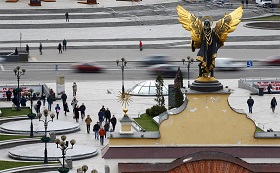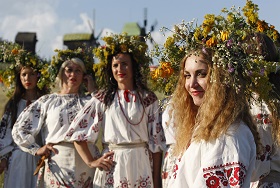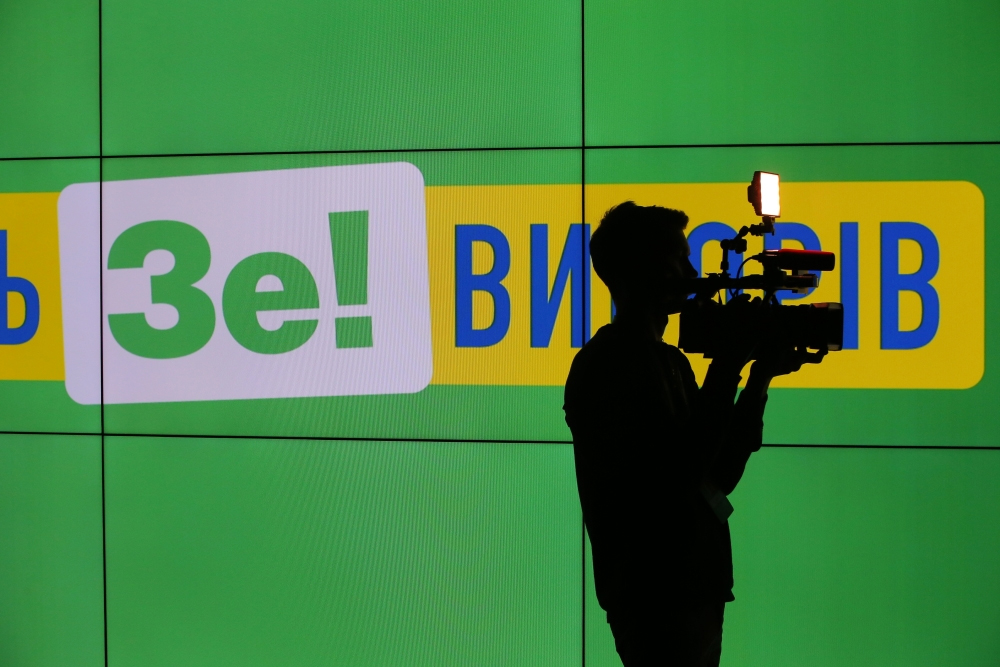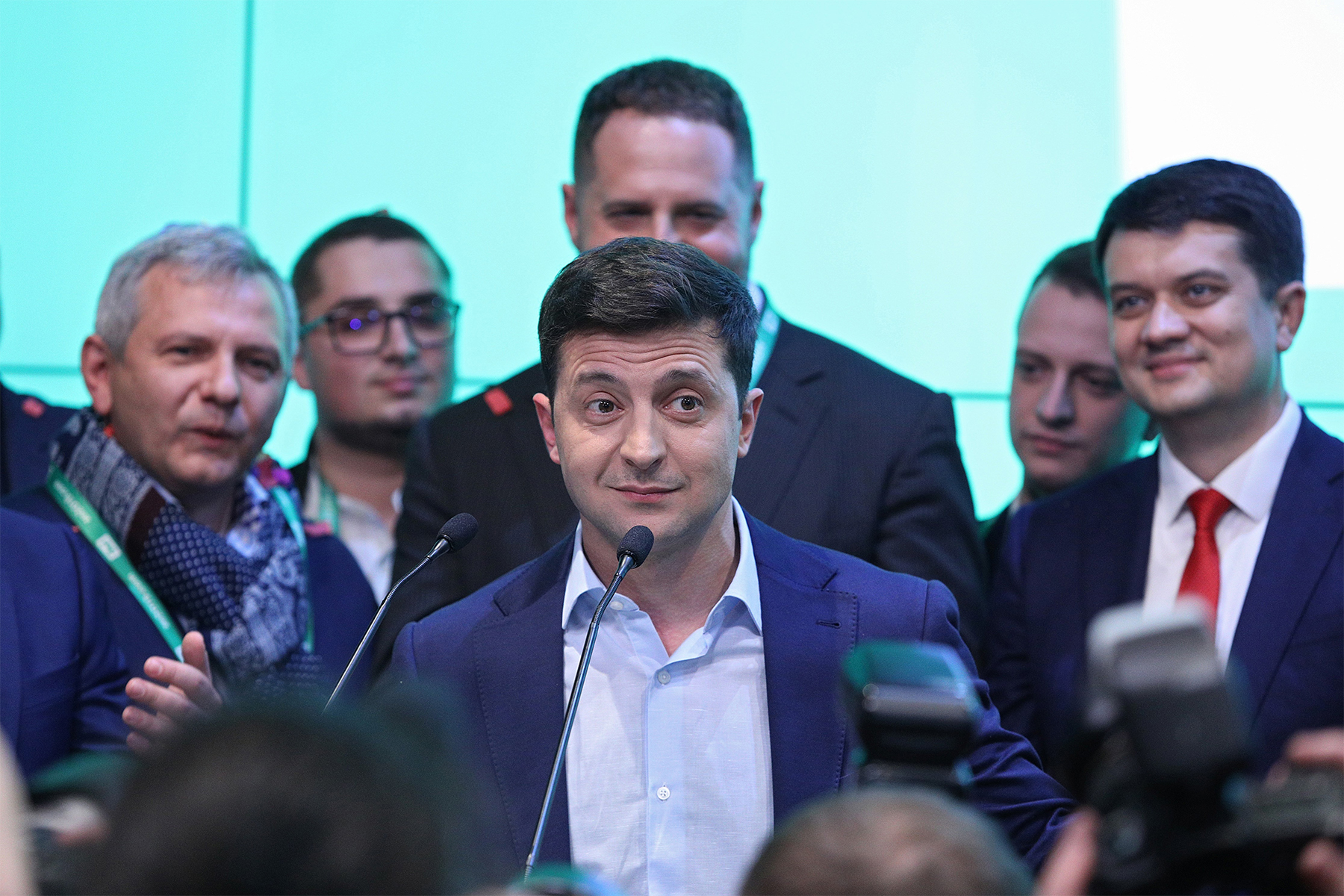Since 2014, Russia–Ukraine relations has persistently been one of the most painful issues on Russia’s international agenda, and one that has not lent itself to more or less impartial expert assessments. It is safe to say that it is this lack of research and real knowledge about one another that led to the conflict in the first place. In order to rebuild these relations, we believe both sides must study their respective “neighbor” as thoroughly as possible and try to understand their motives and desires. Even though the media rarely moves away from this topic, there are few scientific and analytical papers on the issue. On top of all this, scientific and humanitarian contacts between the two countries have been destroyed.
Most of the analytical materials about Ukraine that have appeared recently have been covering the implementation of the Minsk agreements and the problems associated with this, barely touching on issues of Russia–Ukraine cooperation in other areas. Attempts have also been made to comprehend the internal political processes taking place in Ukraine from an analytical perspective and construct forecasts based on various scenarios.
However, it would seem that there are a considerable number of topics that require more detailed analytical and scientific accompaniment. We are talking, for example, about studying the role of the elites, analysing economic processes, weighing up various options for resolving the situation in Donbass using the acquired experience in conflict and post-conflict settlement, promoting regional development and cross-border cooperation, tackling the issue of reintegrating the regions, studying the influence of the diasporas, and developing Track II diplomacy and its potential for resolving the conflict.
In this respect, it may be useful to conduct a review of the expert field (creating a directory or database for distribution); bring attention of young researchers to these issues; set up international research teams and hold workshops on implementing the method; develop recommendations for restoring trust and dialogue between the Russian and Ukrainian societies (on the basis of theoretical knowledge and previous conflict resolution practices); and develop analytical materials to assess the potential development of the situation.
We can observe several shifts in Ukrainian politics today. On August 29, the Verkhovna Rada approved the new composition of the Cabinet of Ministers. The new Minister of Foreign Affairs of Ukraine Vadym Prystaiko immediately came out with a statement: “I want to believe that we can open a new chapter in the peace process. Another thing is of vital importance: we have six months to do this.”
Research into the elites in order to analyse the conflict between Russia and Ukraine
As the main decision-makers, including on issues on international and bilateral relation, the elites may be a promising topic for research into several areas:
1. The elites as decision-makers, including on foreign policy issues.
2. Elite ties and conflicts at this level between countries.
3. Relations between elite groups and international actors and institutes, which affect the development of relations between countries.
An analysis of the elite structure, the decision-making system and the manner in which resources are distributed will answer the question of who negotiations should be held with and on what issues.
When developing the agenda for negotiations, it is essential to understand the other side’s position and how it views the world. Accordingly, it is important to understand who to study and how. Presumably, a study of the elites in Russia and Ukraine would lead us to the conclusion that, in terms of their structure, they are very different. Despite their common Soviet past, knowledge of the elites in one country does not help us to understand the elites in the neighbouring country better.
The state systems in Russia and Ukraine developed in very different ways following the collapse of the USSR. In Russia, the military elites enjoy greater influence, while in Ukraine, it is the business elites who shape the political field in accordance with their own vision and needs. Accordingly, when people with completely different background and experience in doing business and holding negotiations enter into talks, misunderstandings and increased mutual distrust will inevitably ensue.
Hypothetically, a situation may arise in which the interests of the Russian and Ukrainian elites diverge. For example, Russia would be interested in maintaining its security and national identity whereas Ukraine would strive to restore its economy and establish beneficial ties with the United States and the European Union. In this situation, it is important to understand how to find common ground and move the negotiation process forward.
A comprehensive analysis of the role and interests of the individuals who are responsible for the development of the foreign policy agenda and define decision-making in bilateral relations will help the sides find potential channels of personal communication that may prove effective.
Economic research
Economic research can be divided into two blocks: the study and monitoring of the current, official state of economic relations between Russia and Ukraine; and research into the “grey area” of the economy, which has taken an entirely new shape in the five years since the war started in Donbass.
Monitoring the decrease in mutual trade, analyzing the losses incurred as a result of the conflict and studying the breakdown in traditional economic ties between the two countries can reveal points of growth and the potential for negotiations.
Understanding the functioning of the “grey area of the economy” will bring to light the hidden interests of the parties to the conflict affecting their policies and negotiating positions. It is also important to understand that any resolution of the conflict will bring about a restructuring of the “grey areas,” and those who get impressive benefits from “grey schemes” will not be interested in any kind of settlement. They may be content to freeze, or even escalate the conflict if it concerns the arms and military uniform trade. It is important to understand the economic interests of all the external players (the European Union, the United States and China, as well as less obvious but often significant actors) and their influence on the policy regarding the resolution of the situation.
It is important to identify potential topics for a dialogue on economic grounds, and this process may well continue until the situation in Donbass is fully resolved. It should be made clear that economic prosperity and the stable long-term development of the Ukrainian and Russian economies is possible if a resolution to the conflict is found. The economic benefits of cooperation may outweigh the economic benefits of confrontation.
The case of Donbass and the prospects for resolving the conflict
A particularly unique economic, political and socio-cultural situation has developed in Donbass in the five years since the armed conflict broke out in the region. Moreover, this situation requires scrutiny in addition to the efforts to bring about a ceasefire and a resolution to the conflict. New social and economic practices have developed in the Donetsk and Luhansk people’s republics. These practices are mostly informal and must be understood if a settlement to the situation is to be found.
The conflict in Donbass raises the broader issue of what will happen in other border regions of Ukraine that are populated by various ethnic groups. The people of these regions are concerned about their native languages, the education system and the preservation of their respective cultures. Experts note that the return of soldiers from conflict zones creates an unfavorable social situation that may be fraught with growing discontent and even secessionist sentiments.
The rhetoric about the need for a ceasefire in Donbass has reached an impasse, because, despite the assurances from the two sides and despite the admonitions of their European partners, fighting continues. Individual interpretations of the Minsk agreements on both sides have incited new disagreements, and attempts to overcome the controversy by modeling various roadmaps for implementing the agreements have complicated the situation even further. This trend forced the expert community to work together to develop existing scenarios for bringing the Minsk Process back to life, clearly defining the obligations of the parties and understanding the reasons for not fulfilling them.
It is also important to analyze existing plans for the settlement of the conflict in Donbass – the Morel Plan, the Steinmeier Formula, the Saydik Plan, and the Medvedchuk Plan. To what extent is it possible, in principle, to introduce an external institution (local elections) operating under OSCE standards here? To what degree will this procedure correspond to the realities of life in the unrecognized republics? How far will the formal and practical sides of these rules be from each other?
Whose interests (including security and economic interests) will affect these plans? Returning property and restoring economic ties may significantly affect the distribution of powers in the unrecognized republics and the Russian and Ukrainian actors associated with them. The creators of these plans do not consider this side of the issue, since they operate within the framework of international and European law, and the “right of the strongest” also operates in the conflict territories.
Russia–Ukraine interaction in international institutions and organizations
Despite the conflict, Russia and Ukraine continue to be members of international organizations, where they use various levers of pressure to push through decisions in their own interests, thus increasing the overall level of conflict within these structures. On the other hand, these organizations provide a site for conducting negotiations.
Russia and Ukraine are holding discussions at the United Nations. Within the OSCE, the parties are cooperating on the settlement of the conflict in Donbass, where the OSCE Special Monitoring Mission to Ukraine is deployed. Russia has returned to the Parliamentary Assembly of the Council of Europe as a full member, a decision that did not please Ukraine. A separate research task could be to analyze negotiations and interaction between Ukraine and Russia within the framework of international organizations.
Problematic aspects of the final stage of reintegration
If and when the active phase of the hostilities comes to an end and the parties start moving towards a political settlement, Donbass will need to be restored economically and its broken production ties revived.
In this regard, a number of questions must be answered in order to formulate proposals for a peaceful settlement. What will happen after the hostilities have ended? Who will need these territories? And for what purposes? It is highly likely that, at a certain stage, most parties involved will benefit from a kind of limbo, a situation without war or peace. One tentative hypothesis suggests that the only reason Ukraine needs these territories is to preserve the integrity of the state within its customary borders and suppress potential separatist movements in other border regions. However, it is unclear where the money to rebuild these territories will come from. This notwithstanding, judging by the latest statements made by President Volodymyr Zelensky’s team, the government is prepared to take steps towards reintegration, including with respect to the inhabitants of the unrecognized republics.
In turn, many in Ukraine believe that Russia intends to complicate the reintegration of these territories into the Ukrainian political, economic and social systems by riling up radical sentiments among the residents of these separatist territories and depleting the region’s potential. The expert dialogue should include a discussion of the various assumptions of the two sides.
Economic integration requires an investigation to be carried out into the state of enterprises, factories, mines and other economic assets located in the separatist territories with a view to returning them to Ukrainian jurisdiction in the future, coupled with the lifting of the blockade and the fulfilment by the Ukrainian side of its economic obligations under the Minsk Protocols.
Independent experts could play a constructive role by assessing the number of resources required to restore the region, searching for ways to attract potential investors and identifying effective modes for cross-border cooperation between the region and the Russian Federation following its return to the Ukrainian legislative field.
In terms of the social and legal settlement of the situation, an optimal format for granting Donbass a special status in the event of its successful reintegration into the Ukrainian political matrix needs to be found – one which fully guarantees rights of the local population but does not destabilize the Ukrainian political system.
Track II diplomacy and what it can do
The expert dialogue has already begun, and this analytical work can serve as an example of it. The first step could be to review the expert field to determine who is involved in resolving the Russia–Ukraine issue and in what capacity. The publication of a list in the form of a reference book and an anthology of Russia–Ukraine relations will help the parties conduct an ongoing review of the situation and provide a reason for further discussions. The first stage could involve drawing up lists of think tanks in Russia, Ukraine, Europe, the United States and Asia that deal with this issue.
Research work produced by the Ukrainian expert community on the issue of Russia needs to be better. One of the main reasons behind the unawareness of the processes taking place in the neighboring country is a lack of communication. One successful example of the interaction with the Russian academic community was the publication of the joint research paper “Outlines of Russian Policy,” which attempts to harmonize approaches regarding the Donbass settlement and Crimea (vital issues for Ukraine), present a true picture for the Ukrainian reader of what is really happening in Russian domestic political processes, and lay the foundations for discussing a new concept of the Ukrainian policy on Russia under current circumstances.
Russian researchers should find it interesting to work out Ukrainian political, economic and socio-cultural tendencies and their real content and undertones in detail through the involvement of Ukrainian experts. What is more, organizing cooperation at the level of think tanks will expand the window of opportunity significantly.
Joint research projects in areas not related to politics and history (at first) could prove useful. This could help build trust in the expert field. Distancing themselves from propagandistic platitudes and adhering to the principle of academic neutrality, even when there are different visions as to how to solve a given problem, should become important elements of the productive dialogue. In this unprecedented crisis of political relations, public diplomacy retains the potential to generate constructive ideas and recommendations.
The influence of diasporas
The Russian and Ukrainian diasporas in third countries can, in some cases, be quite an influential force, affecting the decision-making process in their respective countries of residence. A perfect example of this is the Ukrainian diaspora in Canada, whose opinions are always considered by government officials when developing policies.
The settlement of the Ukrainian crisis is also affected by the complicated situation surrounding migration and the development of human capital in the country. Western Europe and Russia continue to be attractive destinations for people looking to leave Ukraine, the fallout of which is a severe depletion of quality workers within the country itself. It is crucial to understand how the Ukrainian diaspora and the highly qualified workers who have left the country might help their country overcome the crisis (and if they even want to).
***
Researching the issues described above will help bring the expert dialogue on Russia–Ukraine relations and, on a broader scale, regional security, to a qualitatively new level. This, in turn, will open up space for creative solutions, including new proposals for the Normandy Four.
Note that it is necessary to gradually overcome the apophasis issue when we only get a description of what is happening without specific details. Many studies may not be available for public consumption.
This paper has been prepared jointly by experts from the Russian International Affairs Council (Moscow, Russia) and the Civil Diplomacy Fund (Kyiv, Ukraine), which itself can be seen as a step towards normalizing relations at the expert level.










